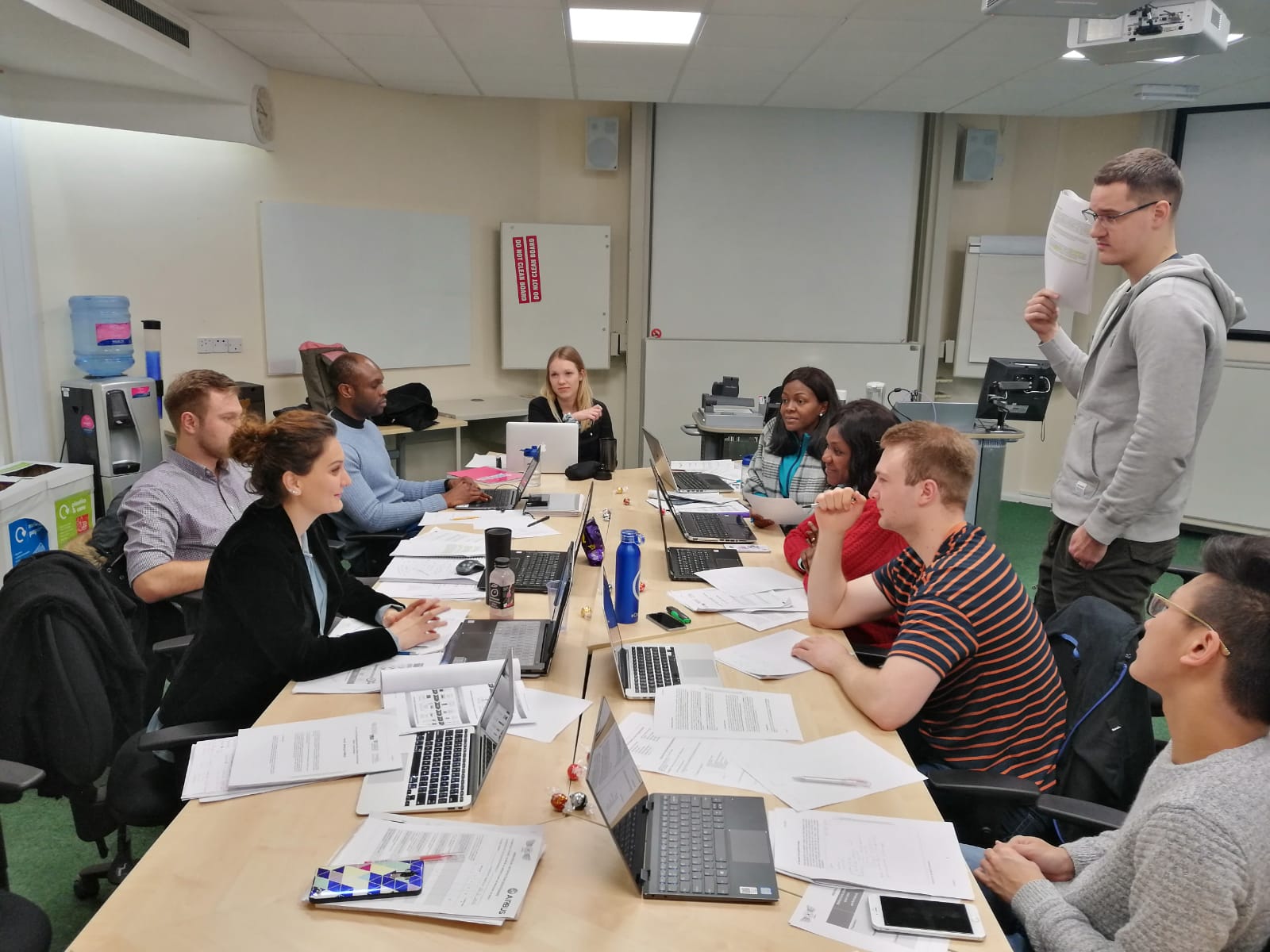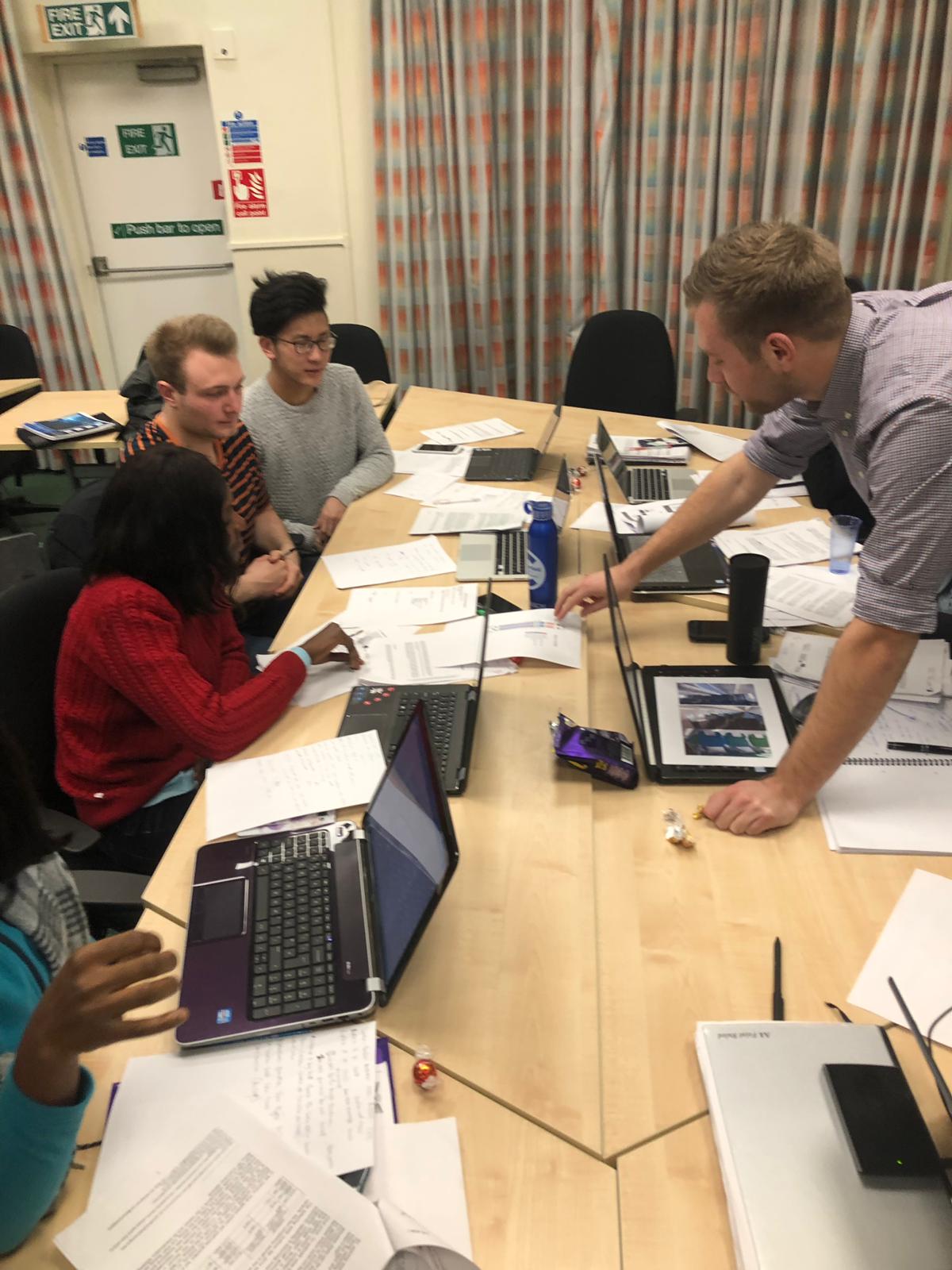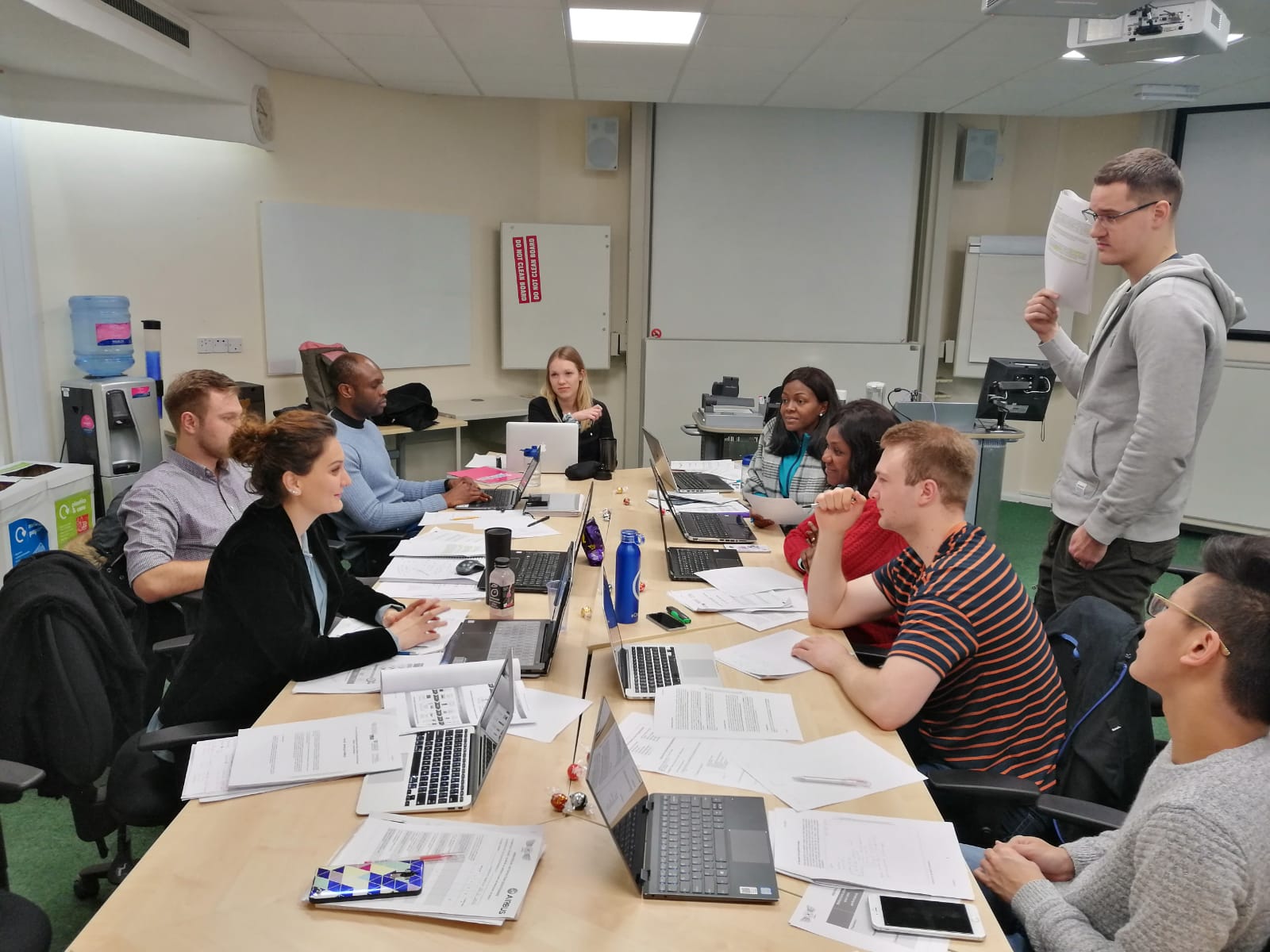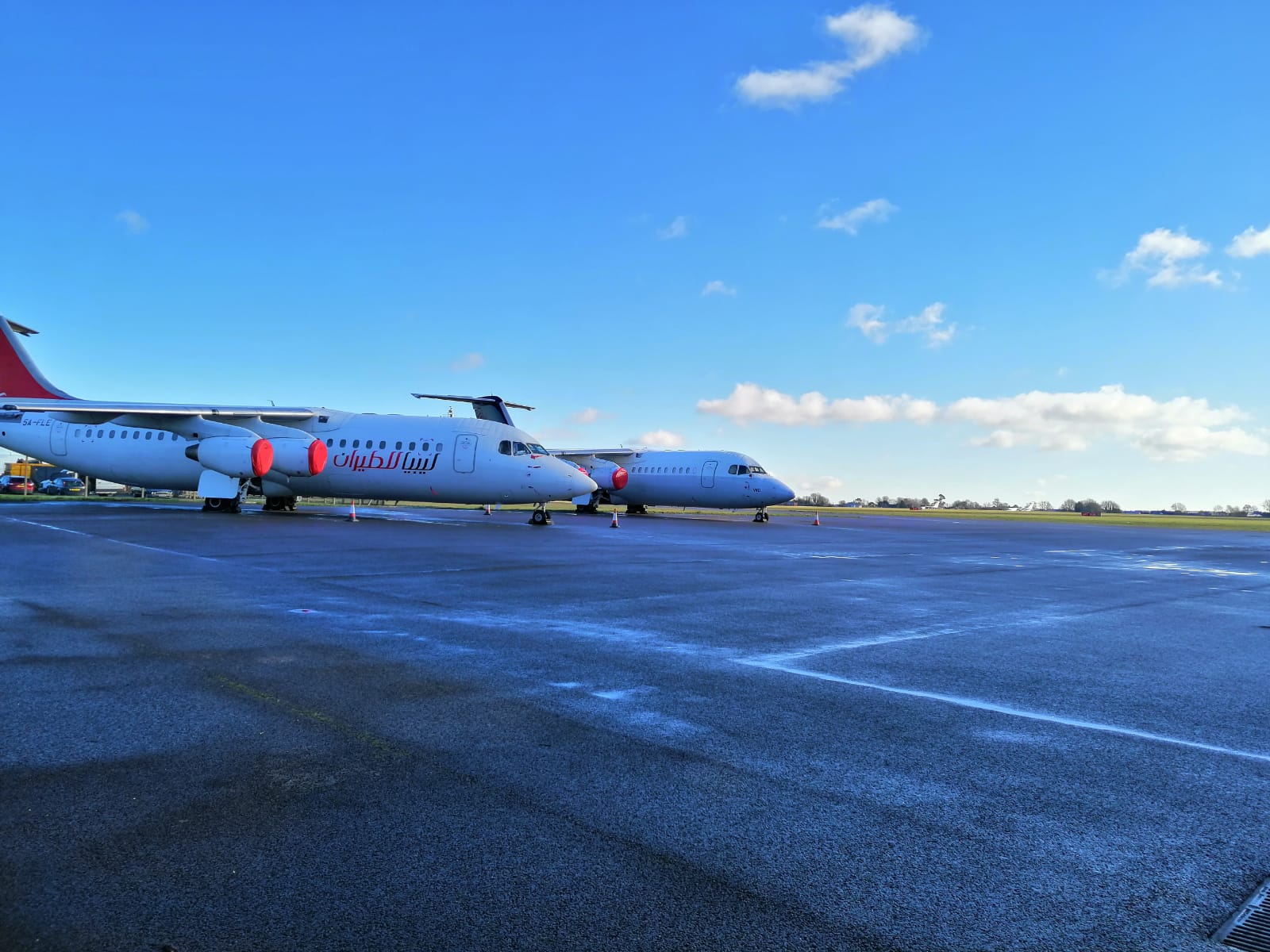How to master the art of negotiation at Cranfield
15/02/2019

By: Rusa Gongladze, Pernille Darville and Alexander Hartmann
MSc Students in Procurement and Supply Chain Management
January, 2019
We have to admit that Negotiation and Contract Management is the best module we have covered up until now on the MSc Procurement and Supply Chain Management.
The five four-hour sessions were intense but perfectly structured. In the beginning, we were quite skeptical about the negotiation part of the module. In the first lecture we thought to ourselves that what the professor explained was all common sense and we were not expecting to learn anything new to be completely honest. But, when we were divided into teams after the first two hour session and were asked to negotiate, it turned out that applying all this “common sense” in practice was not that easy after all.
Actually, most of us ended up without a deal and being quite frustrated about the other party’s performance. This is where it got interesting. In every other lecture, the theoretical part was followed by practical negotiations, based on a case study that appeared to be fairly simple.
The negotiations allowed us to apply our knowledge and to put it into practice, we also had the chance to reflect on what went wrong last time and what had been improved this time. For example, when you talk about hard bargaining style and the consequences it might have, you think yes, that’s easy, we can find the way out easily. However, when you face the actual fact, you end up in deadlock and find it quite hard to come up with a solution. Teams we worked with changed every session and it was very useful in a way that you learn how to work with people from different cultural, ethnic, academic backgrounds. You might find it challenging to work with everybody in your team, but, hey, you have to figure out a way how to do it. So, it’s another important skill you acquire when studying at Cranfield.
Part of the final assessment included group work and involved a negotiation simulation on an aircraft deal. With enough time given prior to actual negotiations, we could see the vital role of preparation, measuring and comparing all the options, estimating what the other party might offer and preparing different solutions in advance. It was very interesting to observe how you have to change your strategies and approaches along the way to get the desirable outcome. Unlike previous negotiations, we even thought of how to place the tables in the meeting room to create a more welcoming atmosphere. It was a continuous development process from one session to another. Everything we learned throughout this module is very useful not only for the business world, but everyday life small negotiations.
Putting your time and efforts into this module delivered by Farooq Habib, is definitely worth it and highly recommended.
And, yes, we managed to get the deal after two hours of non-stop negotiations on the final day! You can see our hard work and finally happy faces in the pictures – Victory of Win-Win outcome achieved! 🙂
Win-Win – We have a deal!!

Not every party seems happy with how the negotiation is progressing!

It requires hard work and intense discussions to find a common ground!

Seems everybody is happy and we are ready to sign a DEAL!

Great daily view of Cranfield Airport! #CranfieldLife
Categories & Tags:
Leave a comment on this post:
You might also like…
From classroom to cockpit: What’s next after Cranfield
The Air Transport Management MSc isn’t just about learning theory — it’s about preparing for a career in the aviation industry. Adit shares his dream job, insights from classmates, and advice for prospective students. ...
Setting up a shared group folder in a reference manager
Many of our students are now busy working on their group projects. One easy way to share references amongst a group is to set up group folders in a reference manager like Mendeley or Zotero. ...
Company codes – CUSIP, SEDOL, ISIN…. What do they mean and how can you use them in our Library resources?
As you use our many finance resources, you will probably notice unique company identifiers which may be codes or symbols. It is worth spending some time getting to know what these are and which resources ...
Supporting careers in defence through specialist education
As a materials engineer by background, I have always been drawn to fields where technical expertise directly shapes real‑world outcomes. Few sectors exemplify this better than defence. Engineering careers in defence sit at the ...
What being a woman in STEM means to me
STEM is both a way of thinking and a practical toolkit. It sharpens reasoning and equips us to turn ideas into solutions with measurable impact. For me, STEM has never been only about acquiring ...
A woman’s experience in environmental science within defence
When I stepped into the gates of the Defence Academy it was the 30th September 2019. I did not know at the time that this would be the beginning of a long journey as ...







Impressive…